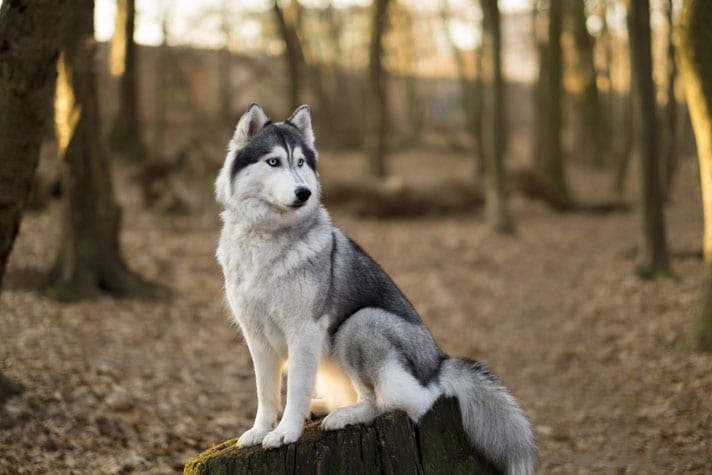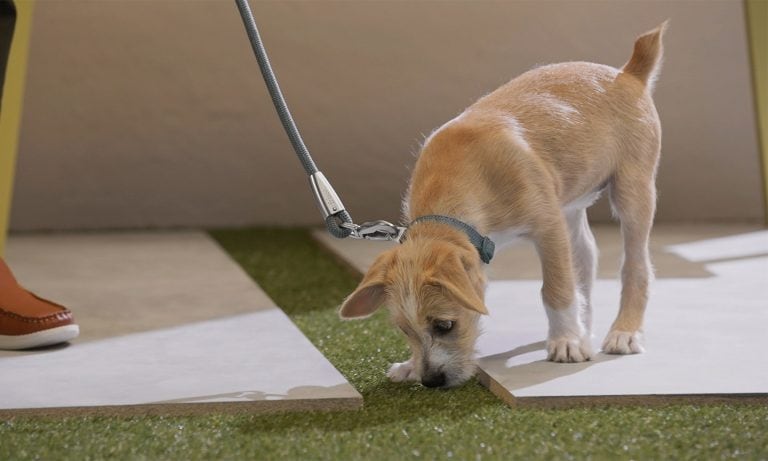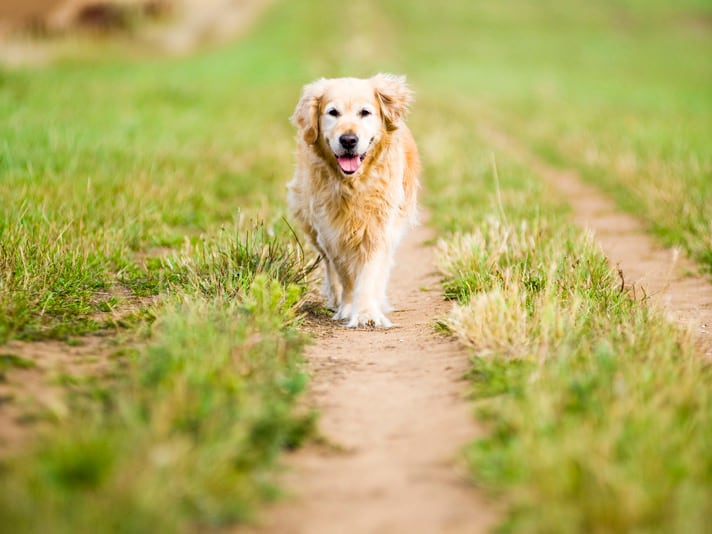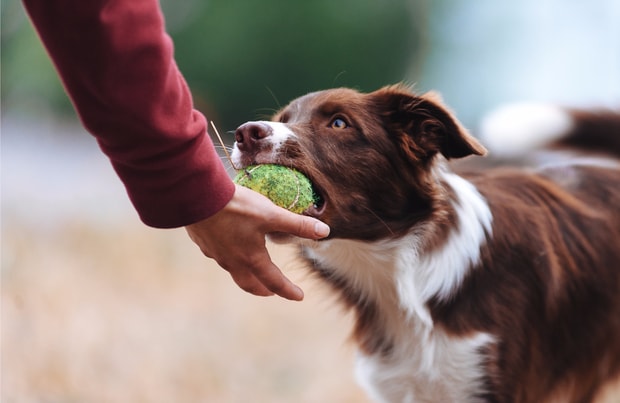The Siberian Husky is an old soul. His forbears are the wolf, the wind and the wild. And while it’s true that all dogs claim ultimate descent from wolves, huskies are different. Most of today’s breeds were developed in the 19th century, cobbled together from various older breeds. This is decidedly not the case with the Siberian Husky. There is no older breed. Primeval and singularly pure, his ancient heritage remains largely intact and undefiled by commingling with other dogs. And he’s a handful.
Understanding The Siberian Husky Personality
The Siberian is very different from other breeds, retaining a great deal of his ancestors’ wolfish ways. Unlike retrievers, pointers, shepherds, terriers and toy dogs, who have had most of the pack orientation bred out of them, the primitive, highly intelligent Siberian retains an extremely strong pack mentality. This mindset must be understood and honored. While a dog pack is most assuredly not the same thing as a wolf pack, neither is it altogether different.
Siberians are a challenging breed in more ways than one: They are prey-driven, complex, competitive, stubborn, strong and clever. They also have an incredible need for exercise, and they need a leader. If you do not take on the leadership role immediately, your clever Siberian will soon be training you. Every pack needs at least one leader, and the basic rule is that all humans should be leaders above all dogs. Leaders control access to all the good stuff that dogs want: dog food, sleeping spots and dog toys, as well as petting and exercise.
In the wild, dominance solves conflict, and conflict establishes dominance. That’s fine for wolves, but it doesn’t work so well in a civilized household and you must not allow it. You do this by exercising your natural leadership.
Real leadership has nothing to do with being violent or overly harsh. It has everything to do with providing a safe, structured, comfortable environment for your husky that includes exercise, good nutrition and affection. This is what matters to your dog. If he seems more interested in bossing around the family than in behaving appropriately, there’s been a serious training failure. But that isn’t your dog’s fault. Ever. If your Siberian is taking on the leadership role, it’s up to you to re-establish the boundary lines, and hope your husky understands. He will; dogs are pretty generous.
Setting The Tone For Training
Establishing a good relationship with your dog is the foundation for successful training. That relationship means that you are the leader and your dog is the follower. Other family members can also be leaders. Wolves generally follow a mated pair, and today’s household dog should have no trouble obeying all family members. The important thing is that the leader cannot be your dog. You set the tone, and the key words are kindness, consistency and confidence.
Kindness
A yearlong study by the University of Pennsylvania, ending in 2009 and published in the journal Applied Animal Behaviour Science (Elsevier), showed that aggressive dogs who were trained with aggressive, confrontational or aversive training techniques (such as being stared at or growled at, rolled onto their backs or hit) continued their aggressive ways. On the other hand, non-aversive training methods like additional exercise or rewards were very successful in reducing or eliminating aggressive responses. The reason is simple: Harsh techniques are designed to intimidate. Dogs respond to intimidation by becoming fearful. Fearful dogs either cower or bite back — or both.
Dogs who are angry, afraid or confused cannot learn anything except to become angrier, more afraid or more confused. The same is true for the trainer. Good leaders do not intimidate, yell, throw things or snarl. They lead. Angry, afraid or confused trainers can’t teach anything to anyone, especially a sensitive, empathetic dog like a Siberian Husky.
Consistency
Good leaders are trustworthy. This means they don’t change the rules on a whim. The most familiar example of inconsistency is the way we humans control — or fail to control — our dogs’ access to food. Sometimes you give your dog tidbits from your plate. Other times, you yell at the dog when he approaches the table.
While Siberians are remarkably intuitive dogs, they can’t read your mind, at least not always. Good leaders successfully communicate to their dogs what they want. This isn’t always easy. Humans speak human and dogs speak dog. However, you don’t need complicated syntax to convey your most basic message: “I am the leader, and I am in control of the situation.” Believe it or not, this is a major stress-reducer for dogs.
When your dog knows that you decide when dinner time is, where the games will happen and how long they last, and where his sleeping spot is, he will feel relieved and not stressed. No more anxious guesswork; he knows what to expect. His need for structure has been fulfilled. In the husky world, hierarchy equals harmony.
Confidence
When you are confident in yourself, your Siberian Husky will be confident in you. Weak, uncertain, soft owners experience much more trouble controlling their dogs than self-assured and confident people. That’s because your Siberian understands almost at once that you are not a leader, and this makes him feel unsafe. As a result, he may become excessively shy, or attempt to take over himself. If he succeeds, it’s a disaster.
The best way to build your confidence around your dog is to sign up for an obedience course at your local kennel club, where you’ll learn techniques that will establish your leadership. In addition to your classes at the club, work with your dog every day on obedience exercises. You’ll feel better about yourself and your dog will feel better about himself, too.
Fulfilling A Husky’s Needs
Your Siberian’s basic needs are simple. He has no desire to run a business, uncover ancient artifacts (other than that bone he buried last year) or figure out the meaning of life. All he wants is to be a dog. But dogs, almost by definition, need people to care for them and lead them in the right direction. If not well led, they will challenge you — and most will concentrate their challenge on a point of utmost concern to them: food, possessions (toys) and rest.
When your Siberian understands that you, his trusted leader, make fair decisions about important things like food and toys and sleeping places, he can relax. He won’t feel the pressure to defend himself or his things — he knows you’ve got it covered and he can happily go back to being a dog. It’s what you both want.
Posted by: Chewy Editorial
Share:









